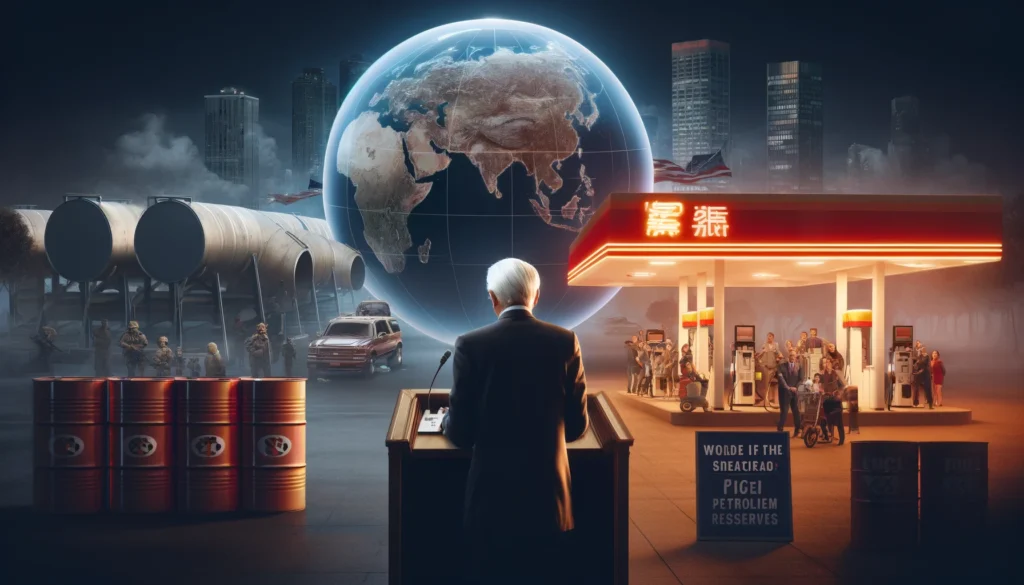In a bold and unprecedented move, the Biden administration announced on Tuesday its decision to sell 1 million barrels of gasoline from the Northeast Gasoline Supply Reserve (NGSR) to the commercial market, aimed at reducing gas prices during the summer months. With President Joe Biden gearing up for a tight re-election race this November amidst rising inflation rates, this move has drawn both support and criticism. As we dissect the implications, it is crucial to examine if the administration’s claims of aiding American families ring true, or whether this plan merely serves as a political smokescreen.
The NGSR, created by the Obama administration as a response to the fuel shortages following Superstorm Sandy in 2012, has never been tapped until now. The Energy Department promises a “competitive bidding process” to support the lower costs for American consumers leading up to the Independence Day celebrations. “The Biden-Harris Administration is laser-focused on lowering prices at the pump for American families, especially as drivers hit the road for the summer driving season,” Energy Secretary Jennifer Granholm said.
However, it is important to highlight that the US consumed approximately 8.94 million barrels of gasoline daily in 2023—placing the 1 million barrels from the NGSR into perspective. This announcement comes after the Biden administration also depleted the Strategic Petroleum Reserve (SPR), trying to stabilize global oil markets and combat gas price increases, raising concerns about national security vulnerabilities.
Republican officials were quick to react, with Senator Mike Lee (R-UT) criticizing the decision as another example of President Biden using emergency fuel reserves to cover for his administration’s inflationary policies in an election year. Rep. Randy Feenstra (R-IA) echoed this sentiment, stating, “Instead of depleting our oil reserves, the President should support American energy production.” He urged Biden to call on the Senate to pass the Lower Energy Costs Act to lower gas prices effectively.
Presidential administrations have frequently faced difficult economic situations during election years, but resorting to emergency fuel reserves is an extraordinary measure. As we evaluate the potential impact of the Biden administration’s move, it is crucial to weigh the short-term benefits of alleviating high gas prices against potential long-term costs and compromised national security. The resulting analysis will indicate whether this decision truly benefits American families, or simply serves as a temporary attempt to win political favor.
In conclusion, the Biden administration’s decision to tap into the NGSR as a means of curbing escalating gas prices in an election year has been met with a mixture of support and opposition. With concerns regarding both US energy security and the actual impact of this move on American families, the administration faces an uphill battle in justifying its actions. As we prepare for the increased summer travel season and a volatile political landscape, the American public must remain vigilant in questioning and understanding the motivations behind such an unprecedented decision.



